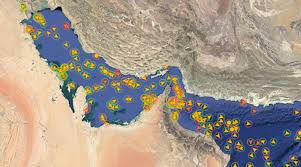Amid the e-commerce boom, Kale Logistics Solutions adapts to meet online retailers’ evolving demands, emphasising speed and reliability in air cargo. Suneet Gupta, Global Head Cargo Community Solutions, highlights Kale’s commitment to optimising air cargo with community, enterprise, and point solutions.

Autonomous cargo drones and urban air mobility herald the future of air cargo, with complex implementation challenges.
Addressing last-mile delivery, their integrated approach fosters seamless information flow among stakeholders, aligning with e-tailers’ evolving needs.
Synergy
Collaboration is vital in today’s air cargo industry, and Kale excels at fostering it. They facilitate seamless cooperation among airlines, airports, logistics firms, and other key stakeholders. The pandemic accelerated digitization, with airlines embracing IATA messaging formats, and Kale’s Cargo Community System plays a pivotal role in optimising processes. This efficiency extends to airport authorities, streamlining operations, and achieving synergies. Kale’s commitment to collaboration and technology-driven efficiency aligns with the evolving air cargo landscape, creating a more interconnected and efficient logistics ecosystem.
Innovations
Kale leads the charge in using AI and machine learning to transform air cargo operations. They employ advanced technology like geo-fencing for real-time cargo tracking, enhancing visibility. Their Digital Air Freight Corridor, based on blockchain and iShare, facilitates trust-based connections among all stakeholders. iShare is more than just a data platform; it includes agreements for identification and authentication. This elevates data sharing, promising transformative benefits across the air cargo industry, optimising warehousing and route planning, and enhancing the entire logistics ecosystem.
Drone Revolution
Autonomous cargo drones and urban air mobility herald the future of air cargo, with complex implementation challenges. Kale acknowledges their transformative potential. Though security concerns initially stalled drone adoption, 2023 sees medical supplies being tested for drone delivery. E-tailers exploring drone services may reshape logistics. Autonomous drones promise reduced human intervention and last-mile delivery optimisation, potentially revolutionising the industry.
Paperless Progress
Kale plays a vital role in modernising the air cargo sector through its mission to reduce paper-based documentation. Their solutions, adopted in key airports globally, have the potential to save 10 million paper copies annually, preserving around 1000 trees.
This transition has delivered significant benefits: 100 percent real-time visibility, a 75 percent reduction in time consumption, and cost savings of 20–30%. While governments push for technology-driven trade facilitation, resistance stemming from misconceptions and a lack of awareness poses challenges. It’s imperative for governments to proactively educate stakeholders and ensure platform neutrality to fully harness technology’s transformative potential in the air cargo sector.
Future Vision
Kale anticipates significant shifts in the air cargo industry over the next decade. They highlight the importance of multi-modal freight corridors, exemplified by the groundbreaking G20 summit initiative, to reduce logistics costs. Kale’s solutions are tailored to meet evolving global needs. Emphasising the pivotal role of AI, they foresee streamlined cargo handling and risk management through data and predictive capabilities, aligning with their mission to empower and integrate all logistics stakeholders.











